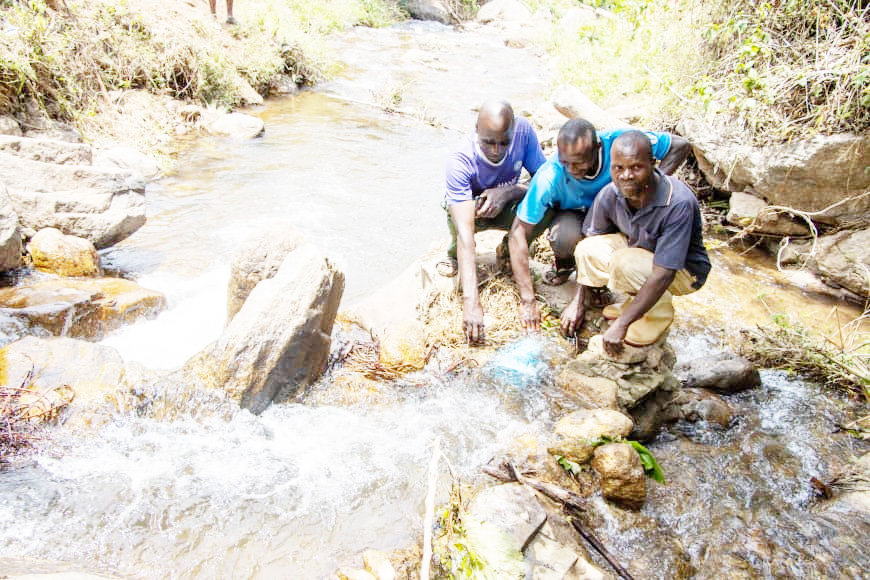Khwakwazi irrigation scheme up and running again
About 84 farming households under the Khwakwazi Irrigation Scheme in Rumphi District can now afford a smile as they anticipate bumper yields this year after a six-year disruption.
The farming community faced a huge setback in 2015 after heavy rains destroyed the main pipes at the water source of their canal rendering the whole scheme useless.

During a recent visit to the area, the scheme’s committee secretary Leonard Mbale narrated the plight the families had to endure after the loss of the equipment.
He said: “This area is hilly and is mostly prone to floods and that is why we do irrigation farming and not rely on rain, and when the pipes were destroyed in 2015, we could not harvest enough as running water kept sweeping away the crops together with the soil.”
According to Mbale, the farmers mostly grow potatoes, tomatoes, beans,
and maize both for sale and for their household.
He explained that following the floods, the farmers tried to fix the problem by using iron sheets and plastic bags to reduce the flow of rainwater but to no avail.
Last year, one implementing partner Find Your Feet (FYF), through its Transform Programme, came to their rescue and supported the group with 44 bags of cement and new 25 pipes, among others.
The group also contributed at least 7 000 burnt bricks and sand to build the canal.
Said Mbale: “We also received technical expertise from the Agriculture office in Rumphi and the Ntchenachena EPA [extension planning area] to replace the pipes.”
He said the scheme provides Rumphi North with at least 85 percent of the food and the rehabilitation of the scheme is good news to everyone, adding: “Communities down there rely on this scheme for food, whether its tomatoes or Maize or Beans, they buy from us, and now that the scheme is up and running, everyone is happy.”
FYF is implementing the intervention under The Sustainable Food Systems for Rural Agriculture Transformation and Resilience (Transform).
Transform is a five-year programme that is being coordinated by the Norwegian Church Aid and DanChurchAid (NCA/DCA) with financial support from the Royal Norwegian Embassy.
The programme which that targets to reach 150 000 agriculture-dependent rural households by 2025.






One Comment